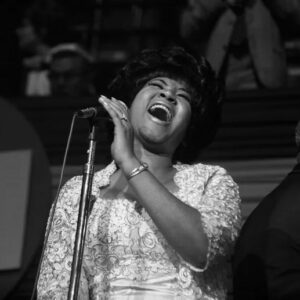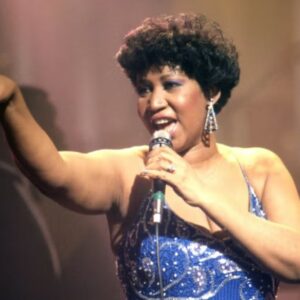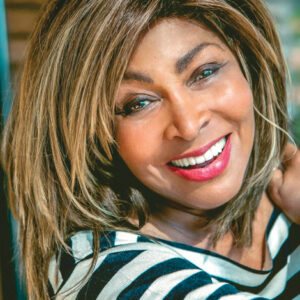In the world of modern television, few names resonate as powerfully as Emilia Clarke. Best known for her groundbreaking portrayal of Daenerys Targaryen in HBO’s monumental series “Game of Thrones,” Clarke has become a household name, embodying strength, resilience, and a touch of vulnerability. Yet, beyond the iconic character that propelled her to fame, there lies a delightful aspect of her public persona: her nickname. As fans and media alike affectionately refer to her by this moniker, it serves as a bridge between her on-screen persona and the woman behind the dragon.
Origin of the Nickname
Emilia Clarke’s nickname, “The Mother of Dragons,” is derived from her character in “Game of Thrones,” where Daenerys Targaryen is known for her fierce dedication to her dragons. This title, laden with power and mystique, has transcended its origins within the show and evolved into a reflection of Clarke’s own charm and warmth. The nickname was born out of a cultural phenomenon, where fans embraced not just the character, but also the actress who brought her to life.
Interestingly, the nickname has also taken on a life of its own in various circles. Friends and family have playfully dubbed her “Emilia” or “Emmy,” but “The Mother of Dragons” has stuck, encapsulating her connection to a character that embodies strength and transformation. Clarke herself has shared anecdotes about how she first encountered the nickname. During promotional events for the show, fans would often chant “Mother of Dragons” as she entered the room, an experience that made her feel both flattered and amused. In her words, it was a “slightly surreal experience,” being called by a title that belonged to a fictional character.
Public Perception
The public’s reception of Clarke’s nickname has been overwhelmingly positive. It reflects not just a fondness for her character, but also an admiration for Clarke herself. Fans have embraced the nickname, using it across social media platforms, creating hashtags, and often referring to her as such in fan art and discussions. The affectionate use of this title has reinforced a bond between Clarke and her audience, making her feel less like a distant celebrity and more like a beloved friend.
In interviews, Clarke has mentioned how much she enjoys the nickname, appreciating the creativity and passion of her fans. “I love that people see me as a nurturing figure, even if it’s for a dragon,” she quipped during a press conference, highlighting the juxtaposition of her character’s fierceness and her own approachable demeanor. This light-hearted take has endeared her further to her fans, who appreciate her ability to laugh at the absurdity of celebrity culture.
Cultural Impact
The impact of Clarke’s nickname extends far beyond personal interactions; it has seeped into the fabric of popular culture. Merchandise bearing the phrase “Mother of Dragons” has become wildly popular, from T-shirts to coffee mugs, with fans proudly displaying their allegiance to both the actress and her character. The nickname has inspired countless memes, each more inventive than the last, often depicting Clarke in whimsical scenarios or referencing her dragons in hilarious ways.
The influence of this nickname can be seen in fan art as well. Artists across platforms like Instagram and Etsy have crafted stunning pieces that celebrate the character of Daenerys while paying homage to Clarke’s vibrant spirit. From striking portraits to playful caricatures, the artistry encapsulates a world where the line between actress and character beautifully blurs.
Moreover, the cultural impact of “The Mother of Dragons” also highlights how fans engage with narratives and characters on a deeper level. It speaks to the ways in which they identify with and find meaning in the stories told on screen. In many ways, Clarke’s nickname symbolizes the community built around “Game of Thrones,” a collective of individuals who have found solace, inspiration, and connection through their shared love of the series.
Personal Connection
For Emilia Clarke, the nickname is more than just a playful title; it resonates deeply with her sense of self. In various interviews, she has expressed her affection for it, finding joy in its whimsical nature. “It’s a bit silly, but I love it. It reminds me of the incredible journey I’ve been on and the amazing people I’ve met along the way,” she remarked in a candid moment during a promotional tour.
Clarke’s relationship with her nickname reflects her understanding of the powerful dynamics at play between celebrity and fandom. Rather than distancing herself from the label, she embraces it, recognizing that it connects her to fans who feel a genuine connection to her character. This connection is particularly poignant in an era where the lines between celebrity and audience continue to blur, especially through the power of social media.
In her reflections on fame, Clarke has noted that the best part of her journey is the relationships she’s formed with her fans. The nickname serves as a reminder of those connections. “When someone calls me that, it’s like they’re acknowledging not just the character, but the love and passion behind the performance,” she shared. This perspective is indicative of Clarke’s grounded nature and her ability to remain humble in the face of global adoration.
Final Thoughts
As we explore the depths of Emilia Clarke’s nickname, it becomes clear that it is more than just a catchy title. It represents a significant aspect of her identity, shaped by her work, the love of her fans, and the cultural phenomena surrounding “Game of Thrones.” Nicknames, in the realm of celebrity, carry the power to shape public perception and forge connections that might otherwise remain distant. They encapsulate not only an aspect of one’s persona but also serve as a bridge between the celebrity and the audience, creating a shared experience.
As fans, we often find ourselves drawn to the quirks and idiosyncrasies of our favorite celebrities, finding joy in the little things that make them relatable. The story of Clarke and her nickname serves as a beautiful reminder of this connection, inviting us to reflect on our own favorite nicknames for celebrities. Who do you think deserves a nickname? What would it be, and why? As we celebrate the unique ways in which stars touch our lives, let us continue to appreciate the little quirks that make them human.
In the end, Emilia Clarke’s journey from a budding actress to “The Mother of Dragons” illustrates the magical blend of talent, passion, and fan engagement that characterizes modern celebrity culture. Whether you’re a die-hard “Game of Thrones” fan or just someone who appreciates the warmth and humor Clarke exudes, her nickname remains a testament to the incredible impact she has had on popular culture—and a reminder that, sometimes, a nickname is worth more than a thousand accolades.





